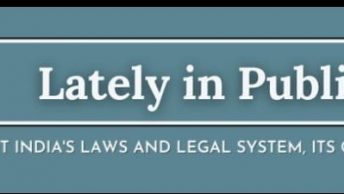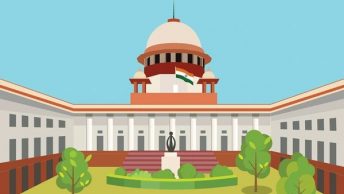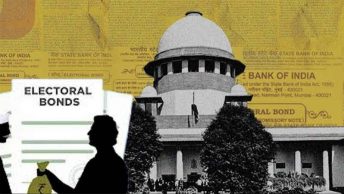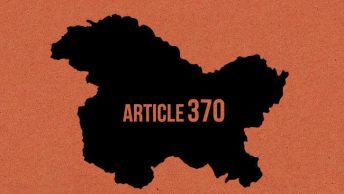Summary: The article argues that the interim arrangement given by the SC in the Anoop Baranwal case represents a constitutional statute with the twin essential minimum content of: a. Independence...
A fortnightly feature inspired by I-CONnects weekly What’s New in Public Law feature that addresses the lacuna of a one-stop-shop public law newsletter in the Indian legal space. What’s new at...
The recent controversy surrounding Arvind Kejriwal’s refusal to resign as Chief Minister of Delhi, despite his arrest in a liquor policy case under the PMLA, has brought the concept of...
Summary: The piece examines the State of Kerala’s challenge against the Union of India’s borrowing constraints, analyzing the fiscal relationship, constitutional history, and the...
Summary: Article 25 of the Constitution has traditionally focussed on religious rights and the scope of protection they enjoyed from state intervention. However, there is one aspect of this right...
Introduction On April 25, 2003, The Hindu published an editorial titled ‘Rising Intolerance’. This editorial was translated and further reproduced in Murasoli, a DMK newspaper. The editorial...
Summary: In this article, the author argues that the amendment to tax both games of chance and games of skill at the same rate violates Article 14. This move lacks an intelligible classification and...
A fortnightly feature inspired by I-CONnect’s weekly “What’s New in Public Law” feature that addresses the lacuna of a one-stop-shop public law newsletter in the Indian legal...
Summary: The creation of environmental protection legislations signifies an attempt by states to address the issues of environmental degradation and carve a path to sustainable development. However...
Summary: The decision of the Supreme Court in the electoral bonds case represents an attempt at balancing conflicting fundamental rights by employing the double proportionality standard. In this...
The LAOT Team is delighted to bring our readers a book discussion on Prof. Mathew John’s latest book, India’s Communal Constitution: Law, Religion and the Making of a People. Over the next few...
Summary: This article examines the newly enacted Telecommunications Act and delves into the concerns and uncertainties surrounding its provisions. The Telecommunications Act 2023 (“the Act”) ...
In the realm of legal and political discourse surrounding the Indian Supreme Court’s judgment on the abrogation of Article 370, the prevailing narrative often succumbs to the dichotomy of the...











